

September 8, 2022
Speakers
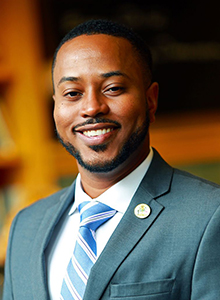
Peter Blair
Assistant Professor of Education, Harvard Graduate School of Education
Dr. Peter Q. Blair is on the faculty at Harvard University in the Graduate School of Education where he co-directs the Harvard Project on Workforce. He serves as a Faculty Research Associate of the National Bureau of Economic Research (NBER) and the Principal Investigator of the BE-Lab – a research group with partners across several universities. His group’s research focuses on questions at the intersection of the economics of education, labor economics and public economics. the future of work and the future of education, labor market discrimination, occupational licensing, and residential segregation. Dr. Blair received his Ph.D. in Applied Economics from the Wharton School at the University of Pennsylvania, his M.Sc. in Theoretical Physics from Harvard University, and his B.Sc. in Physics and Mathematics from Duke University. He is the youngest of his parents’ seven sons, and got his start understanding markets by selling fruit and vegetables in the Bahamas in the Nassau Straw Market with his brothers.
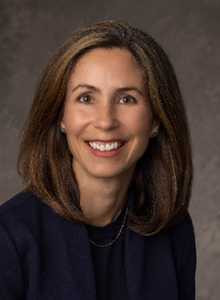
Jane Flanagan
Acting Director, Illinois Department of Labor
Jane Flanagan is the Acting Director of the Illinois Department of Labor. She was appointed to lead the State’s primary labor enforcement agency by Illinois Governor J.B. Pritzker in February 2022. Prior to her appointment, Jane was a Deputy General Counsel and Deputy Chief Compliance Officer in the Office of Illinois Governor, where she supervised legal and regulatory matters across a portfolio of state agencies with a focus on labor standards enforcement, workforce training, and work-related safety net programs.
Jane is the founder and former Chief of the Workplace Rights Bureau in the Office of the Illinois Attorney General. Under her leadership, that Office drew national attention to the widespread use of non-compete agreements for low-wage workers, negotiated four federal consent decrees involving labor trafficking in the restaurant industry, and led multiple state level legislative changes.

Susan Houseman
Vice President and Director of Research, Upjohn Institute for Employment Research
Susan Houseman is Vice-President and Director of Research at the Upjohn Institute for Employment Research. She is a labor economist whose recent research focuses on contract employment arrangements, domestic outsourcing, offshoring, manufacturing, and measurement issues in economic statistics.
She co-directs the Outsourcing Research Network, chairs the Technical Advisory Committee to the U.S. Bureau of Labor Statistics; co-directs the Labor Statistics Program at the Institute of Labor Economics (IZA) in Bonn, Germany; and chaired the National Academies of Sciences, Engineering, and Medicine, Consensus Study on Measuring Alternative Work Arrangements for Research and Policy. She received her PhD in economics from Harvard University.
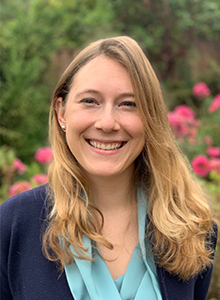
Emilie Jackson
Assistant Professor of Economics, Michigan State University
Emilie Jackson is an Assistant Professor of Economics at Michigan State University. Her research is in the fields public and labor economics and her recent work uses US tax data to explore the implications of the recent growth in gig employment opportunities (e.g. Uber, Lyft, TaskRabbit, etc.) for individuals facing unemployment shocks. She quantifies the take-up of gig work during unemployment and evaluates the ability to smooth income in the short-run. Furthermore, she evaluates the long-run implications for workers’ labor supply, skill acquisition, and earnings trajectory.
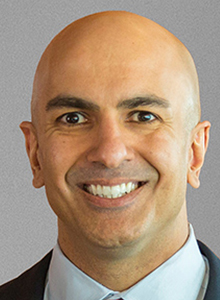
Neel Kashkari
President & CEO, Minneapolis Fed
Neel Kashkari has been president and chief executive officer of the Federal Reserve Bank of Minneapolis since Jan. 1, 2016. He serves as a member on the Federal Open Market Committee, bringing the Ninth Federal Reserve District’s perspective to monetary policy discussions in Washington, D.C. In addition to those responsibilities, Neel oversees Minneapolis Fed operations and leads its many initiatives. Among them, he was instrumental in establishing the Opportunity & Inclusive Growth Institute, whose mission is to ensure that world-class research helps to improve the economic well-being of all Americans. Read more…
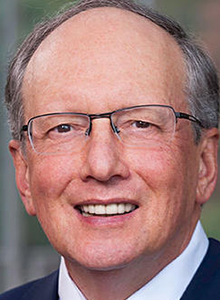
Morris Kleiner
Professor and AFL-CIO Chair in Labor Policy, Humphrey School of Public Affairs
Morris M. Kleiner is a professor at the Humphrey School of Public Affairs, and he teaches at the Center for Human Resources and Labor Studies, both at the University of Minnesota Twin Cities. He has received many university teaching awards for classes in public affairs, business and economics. He has published extensively in the top academic journals in labor economics and industrial relations, and is the author, co-author or co-editor of nine books, including four on occupational regulation. His work has been supported by the National Science Foundation, the U.S. Department of Labor, the U.S. Department of Health and Human Services, the United Kingdom Commission for Employment and Skills, the Smith Richardson Foundation, the Ewing Marion Kauffman Foundation, the Russell Sage Foundation, and the W.E. Upjohn Institute for Employment Research.
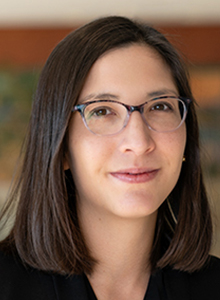
Katie Lim
Economist, Community Development and Engagement, Minneapolis Fed
Katherine (Katie) Lim is an economist with the Federal Reserve Bank of Minneapolis, where she conducts policy-relevant research to benefit low- and moderate-income workers. Prior to joining the Minneapolis Fed, she was a financial economist with the U.S. Department of the Treasury. Her research and policy interests cover issues relating to self-employment, women’s labor force participation, and the taxation of pass-through businesses.
Lim received a B.A. in economics and mathematics from Macalester College and a Ph.D. in public policy and economics from the University of Michigan.
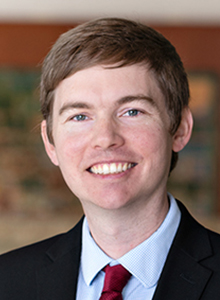
Ryan Nunn
Assistant Vice President, Community Development and Engagement, Minneapolis Fed
Ryan Nunn leads applied research in Community Development and Engagement (CDE) at the Minneapolis Fed. Together with a team of CDE researchers, he looks for opportunities to improve outcomes for low- and moderate-income communities with the help of better evidence and analysis.
Before coming to the Bank, Ryan was a fellow in economic studies at the Brookings Institution and policy director for the Hamilton Project. In those roles, he conducted economic research on a variety of topics, ranging from unemployment insurance and occupational licensing to demographic and geographic disparities. Prior to that, Ryan was an economist at the U.S. Department of the Treasury.
Ryan received his undergraduate degree in economics from Case Western Reserve University and his Ph.D. in public policy and economics from the University of Michigan.
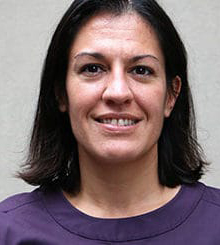
Laura Padin
Director of Work Structures, National Employment Law Project
Laura Padin is the Director of Work Structures at the National Employment Law Project, a national advocacy organization focused on building a just and inclusive economy where all workers have expansive rights and good jobs. Laura’s work focuses on developing and promoting policies that improve workplace standards and economic security for contingent workers, including “gig” workers and temporary staffing workers.

Evan Starr
Associate Professor, Robert H. Smith School of Business, University of Maryland
Dr. Evan Starr is an Associate Professor of Management & Organization at the Robert H. Smith School of Business, University of Maryland. His research examines issues at the intersection of employee mobility, human capital, entrepreneurship, and technology. He is particularly interested in the impacts of postemployment restrictions on workers and firms. Dr. Starr has authored more than a dozen articles in leading journals in economics and management and testified in front of the US Senate and the US House of Representatives. His research has been covered in major news outlets including The New York Times, The Wall Street Journal, The Economist, NPR, Financial Times, and The Washington Post. Formerly a professor at the University of Illinois, Dr. Starr received his PhD in Economics from the University of Michigan and a BA from Denison University.
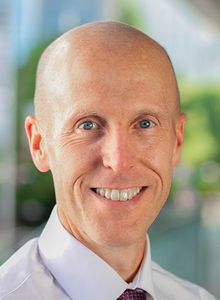
Keith Wardrip
Community Development Research Manager, Philadelphia Fed
Keith Wardrip’s research focuses primarily on employment and postsecondary educational opportunities for low- and moderate-income populations, philanthropic support for local community and economic development, and affordable housing and housing quality. Keith provides oversight to many important initiatives at the Bank, including the Rental Housing Affordability Data Tool, the Occupational Mobility Explorer, and Community Profiles.
Keith joined the Bank’s Community Development and Regional Outreach Department in 2011 and has served as the community development research manager since 2013. Two highlights of his job are overseeing the high-quality work conducted by research analysts and helping younger researchers who are just starting their careers.
About the Series
This seminar is part of the Federal Reserve Community Development Research Seminar Series, a forum for exploring the intersection of research, policy, and practice in the community development field. The Series expands access to high-quality research that informs stakeholders who are working to support low- and moderate-income communities and communities of color.





